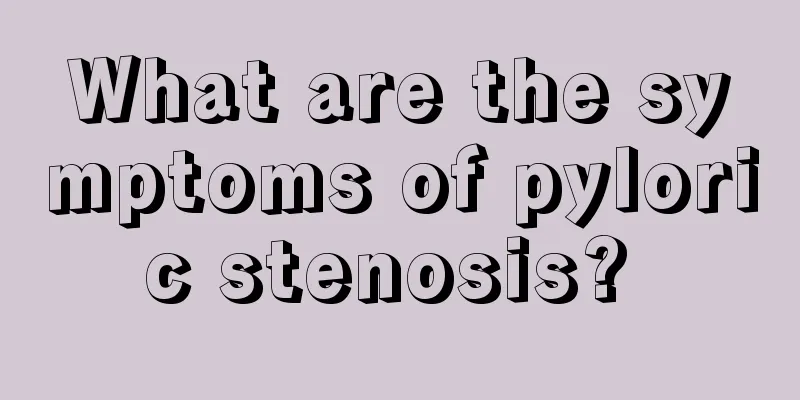How to quickly treat constipation

|
The human body is a very magical thing. Each body is composed of many different systems and organs, and each system is interconnected and restricted by each other. If the body shows some abnormal reactions, it means that there are problems in some aspects of people's lives. For example, constipation is a very common physical reaction, but few people pay attention to it and treat it early. Everyone knows that excretion is a very important process in the human body. It is a process that removes waste and toxins from the body, and constipation is precisely what prevents people from excreting normally. This will definitely have a great impact on the body, so how can we quickly treat constipation? How to treat constipation quickly 1. General treatment Patients with constipation need to adopt comprehensive treatment according to the severity, cause and type of constipation, including general lifestyle treatment, drug treatment, biofeedback training and surgical treatment to restore normal bowel movement physiology. Pay attention to lifestyle treatment, strengthen education for patients, adopt reasonable eating habits, such as increasing dietary fiber content, increasing water intake to enhance stimulation of the colon, and develop good bowel habits, such as defecating in the morning, defecating as soon as you feel the urge, avoiding straining during defecation, and increasing activity. During treatment, attention should be paid to clearing excess feces in the distal rectum; a positive adjustment of the mentality is required, which are extremely important for obtaining effective treatment. 2. Medication (1) Bulk-forming laxatives mainly include soluble cellulose (pectin, psyllium, oat bran, etc.) and insoluble fiber (plant fiber, lignin, etc.). Bulk laxatives are slow to take effect but have few side effects and are safe, so they are effective for constipation during pregnancy or mild constipation, but are not suitable for rapid laxative treatment of temporary constipation. (2) Lubricating laxatives can lubricate the intestinal wall, soften the stool, make it easier to excrete, and are easy to use, such as enema, mineral oil, or liquid paraffin. (3) Saline laxatives such as magnesium sulfate and milk of magnesium can cause serious adverse reactions and should be used with caution in clinical practice. (4) Commonly used osmotic laxatives include lactulose, sorbitol, polyethylene glycol 4000, etc. It is suitable for fecal impaction or as a temporary treatment for chronic constipation. It is a good choice for patients with constipation who are poorly responded to bulk laxatives. (5) Stimulant laxatives include anthraquinone-containing herbal laxatives (rhubarb, cascara bark, senna, aloe vera), phenolphthalein, castor oil, diphenhydramine, etc. Stimulant laxatives should only be used when bulk laxatives and saline laxatives are ineffective. Some are quite strong and not suitable for long-term use. Long-term use of anthraquinone laxatives can cause melena colon or cathartic colon, causing atrophy of smooth muscle and damage to the myenteric nerve plexus, which in turn aggravates constipation and is reversible after discontinuation of the drug. (6) The prokinetic agents mosapride and itopride have a gastrointestinal motility-promoting effect, and prucalopride can selectively act on the colon and can be used according to the situation. 3. Equipment assistance If the stool is hard and stagnant in the rectum near the anus, or if the patient is elderly and weak, or has poor or absent bowel movement motivation, colon hydrotherapy or cleansing enema can be used. 4. Biofeedback therapy It can be used for patients with constipation due to rectal, anal and pelvic floor muscle dysfunction, and has good long-term therapeutic effect. Biofeedback therapy can train patients to relax their pelvic floor muscles during defecation, so that the abdominal muscles and pelvic floor muscles can move in a coordinated manner during defecation. For patients with abnormal defecation thresholds, attention should be paid to rebuilding the defecation reflex and adjusting the perception of defecation. There are no specific regulations for the training plan. The training intensity is high, but it is safe and effective. For patients with pelvic floor dysfunction, biofeedback therapy should be preferred over surgery. 5. Cognitive therapy Patients with severe constipation often have symptoms of psychological factors or disorders such as anxiety or even depression. They should be given cognitive therapy to help them eliminate tension and, if necessary, anti-depression and anti-anxiety treatments, and a psychologist should be asked to assist in diagnosis and treatment. 6. Surgery All of the above treatments are ineffective for severe and intractable constipation. If it is colon transport dysfunction type constipation and the condition is severe, surgical treatment can be considered, but the long-term effects of surgery are still controversial, and case selection must be cautious. Among the huge group of diseases such as constipation, only a very small number of cases actually require surgical treatment. The reason why people do not take constipation seriously is that they think it does no harm to the body. But this idea is totally wrong. If the waste in the body cannot be excreted, it will turn into many harmful substances that harm the human body, which will cause more diseases to harm the human body. Therefore, people suffering from constipation should seek treatment as soon as possible. |
<<: How to relieve constipation
>>: Notice! These 11 physical diseases are easily misdiagnosed
Recommend
Is Glycated Hemoglobin the same as blood sugar? The difference between glycosylated hemoglobin and blood sugar
Blood sugar refers to the monosaccharide in the b...
Can washing your face with vinegar remove freckles?
How can a beautiful face tolerate the appearance ...
What is the best treatment for colon cancer
What is the best way to treat colon cancer? The m...
What is the cause of qi deficiency and blood stasis in lung cancer
Lung cancer is a malignant tumor disease of the r...
Brushing your tongue can prevent bad breath
Traditional Chinese medicine believes that bad br...
How long can you live after bile duct cancer surgery
The survival time after bile duct cancer surgery ...
What are the healthy diets for nasopharyngeal cancer
In recent years, nasopharyngeal carcinoma has bec...
Can washing feet with tea cure athlete's foot?
Washing feet with tea leaves has certain effects....
The role of blood vessels
There are many blood vessels in our body. These b...
What are the symptoms of lymphoma recurrence and can it be cured?
What are the symptoms of lymphoma recurrence? Can...
What should I do if my hair quality is poor
The quality of hair is getting worse and worse. I...
Why does it hurt so much after taking penicillin
People who are usually weak and often deal with p...
Can faded clothes be soaked in salt water?
In daily life, the fading of clothes is a very di...
How to remove black scale on iron pan
Cooking in a pot is a cooking tool that we cannot...
What to do if you have a hunchback
In many cases, what people do are quite different...









